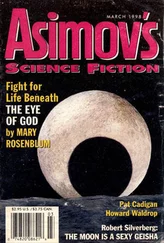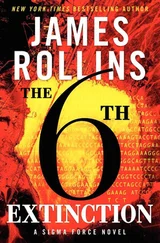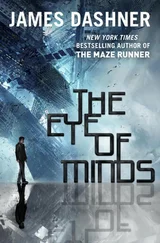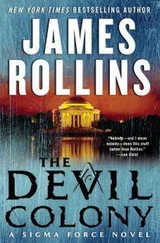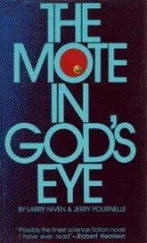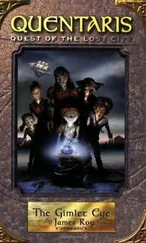The main room looked like a cross between a medieval library and the mad nest of a hoarder. Rows of bookcases strained under the weight of their volumes. Desks lay buried under mounds of papers and notebooks, along with bits of broken pottery, even a few dusty bones. Additionally, charts and maps had been nailed to the wall, some torn in half, others marked over so heavily with a thick scrawl as to be indiscernible. Then there were the chalked diagrams spanning another section of the walls, with arrows connecting and dividing, as if someone were engineering a giant Rube Goldberg machine.
In the center of the chaos stood the clear master of this domain.
He was dressed similarly to Sanjar, but with the addition of a Roman collar. Over the years, the sun and wind had weathered the priest’s skin to a burnished brown, while also bleaching his hair white. His cheeks and chin were scruffy with several days’ worth of beard.
He looked much older than Vigor—though Jada knew the man was actually a decade younger.
Still, despite his aged countenance, a pair of eyes blazed brightly as he turned toward them. But Jada wondered: Was that shine brilliance or madness?
5:58 P.M.
Vigor could not hide his shock at the state of his colleague.
“Josip?”
“Vigor, my friend!” Josip waded through stacked books on the floor, his thin arms raised in greeting, tears beginning to brim. “You came!”
“How could I not?”
When Josip reached him, they hugged. His friend clung to him, repeatedly squeezing his shoulders as if to test that he was real. In turn, Vigor felt the thinness of his colleague’s frame, thinking Josip’s years in this harsh desert had almost mummified him. But Vigor suspected it was obsession more than anything that had burned his friend to skin and bone.
Sadly, such had been the case in the past, too.
Early in his seminary years, Josip Tarasco had suffered his first psychotic break. He had been found naked atop the roof of the school, claiming he could hear the voice of God in the stars, explaining he needed to remove his clothes so the starlight could bathe him more fully, drawing him closer to the Lord.
Shortly after that, he had been diagnosed with bipolar disorder, a manic condition of deep lows and blazing highs. Lithium and other antidepressants helped stabilize the severity of those emotional swings, but never entirely. On the positive side, that same condition seemed to stoke a fire of genius in the man, a brilliance born out of that streak of madness.
Still, lapses of his mental status did occur, expressed as bouts of obsessive compulsion, tics of behavior, and, in rare moments, full psychotic breaks. So Vigor was not entirely surprised when Josip suddenly vanished off the face of the earth ten years ago.
But what about now . . . ?
As they ended their embrace, Vigor searched Josip’s face.
His friend noted the attention. “I know what you’re thinking, Vigor, but I am in my right mind.” He glanced around the chamber, running a hand through his hair. “Perhaps a bit compulsive at the moment, I will admit that, but stress was always my enemy. And considering the timetable we’re all under, I must accept and utilize every unique gift God has given me.”
Upon hearing all this, Rachel looked sternly at him. Vigor had failed to mention Josip’s mental condition to her, fearing it would dissuade her from allowing him to travel here. He also worried such a revelation might cast doubts on the validity of the man’s concerns.
Vigor had no such prejudices.
He respected Josip’s genius, regardless of his diagnosis.
“And speaking of that rushed timetable,” Vigor said, “perhaps you can explain why you summoned me here in such a strange manner. What you sent brought a great deal of trouble along with it.”
“They found you?”
“Who found us?” Vigor pictured the attack at the university and the deadly bombing in Aktau.
Josip shook his head, his gaze turning flighty, edgy with paranoia. Vigor could see the man struggling against it.
He licked his lips. “I don’t know. Someone killed the courier I sent overland to mail the crate. On his way back he was waylaid, tortured, his dead body dumped in the desert. I thought . . . I was hoping it was just bandits. But now . . . ?”
Josip was losing his battle. Raw suspicion shone in his face, his gaze glancing off everyone now. It seemed compulsion was not the only symptom manifesting during this stressful time.
In order to stem that growing paranoia, Vigor made fast introductions, ending with, “And you must remember Rachel, my niece.”
Josip’s face brightened with sudden recognition and relief. “Of course! How wonderful!” This slice of the familiar seemed to immediately drain the tension out of Vigor’s colleague, to reassure him that he was among friends. “Come, I have much to show you and so very little time.”
He marched them over to a long wooden table with bench seating. Sanjar helped him clear the surface. Once that was done, they all settled down.
“The skull and the book?” Josip started, his desire plain to read.
“Yes, I have them with me. On the helicopter.”
“Can someone fetch them?”
Duncan stood up and volunteered to retrieve them.
“Thank you, young man,” Josip said. He then turned to Vigor. “I assume you’ve already identified the skull’s owner, the same man who once wore that skin.”
“Genghis Khan. The relics were crafted from his body.”
“Very good. With your resources, I knew you’d solve that mystery.”
“But where did you find such macabre items?”
“In the grave of a witch.”
The young woman, Dr. Shaw, made a scoffing noise. She had not been won over to their cause during the flight here, even after Vigor had revealed the history of the relics. She clearly suffered from her own single-mindedness and was anxious to continue onward with Sigma’s secret mission in Mongolia.
Ignoring her, Vigor encouraged Josip. “I remember you were on a research trip to Hungary, investigating the witch hunts of the eighteenth century.”
“Indeed. I was in Szeged, a small town along the Tisza River in southern Hungary.”
Josip stressed the name of the river, staring harder at Vigor, as if offering a hidden clue. Something about the name did trigger a flicker of recognition. He just couldn’t say why.
Josip continued, “In July of 1728, during the height of that witch hunt, a group of twelve local townspeople were burned at the stake on a small island in the river called Boszorkánysziget . Which means Island of the Witches, named after the great number of innocents torched there.”
“Such superstitious nonsense,” Rachel muttered with a scowl.
Jada nodded next to her.
“Actually, superstitions had very little to do with these particular murders. Hungary was at the end of a decade-long drought. Rivers dwindled to trickles, farmlands turned to dust, famine was rampant.”
“The people needed a scapegoat,” Vigor said.
“And someone to sacrifice. Over four hundred people were killed during that time, but not all those deaths were born of fearful superstitions. Many public officials used that bloody period to rid themselves of threats or for petty revenge.”
“And the twelve in Szeged?” Rachel asked, ready to hear more about this cold case.
“I found a copy of the original trial transcript in a monastery outside of town. Their inquisition was less concerned about witchcraft and more about rumors of the twelve discovering a buried treasure. Whether true or not, they refused to speak. Others took the stand to say they heard some of the twelve talking about finding a skull and a book bound in human skin. Such accusations of the occult eventually led them to be burned at the stake.”
Читать дальше

